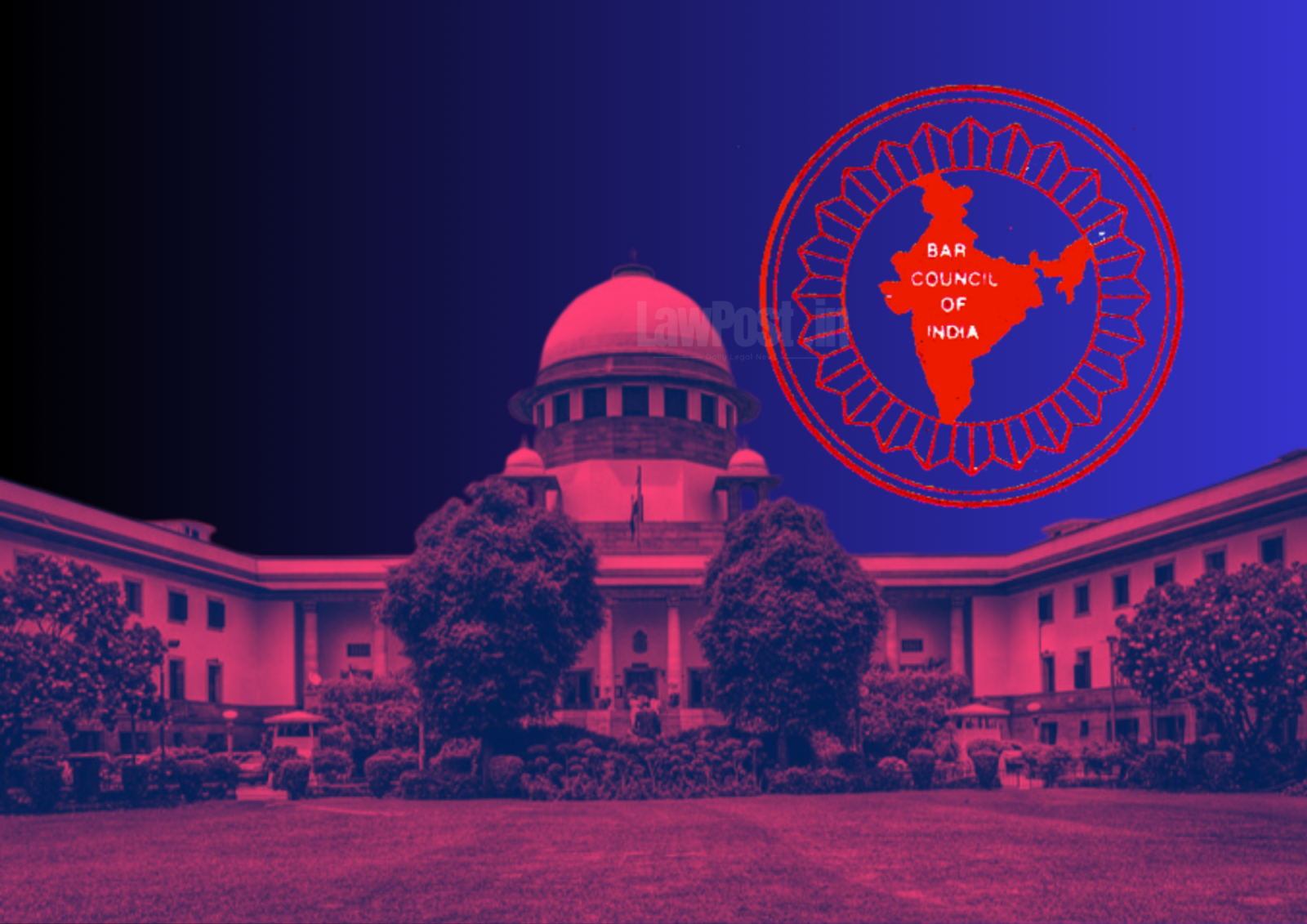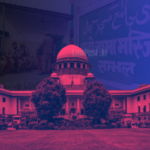The Supreme Court on Friday issued notice to the Bar Council of India (BCI) in response to petitions challenging two controversial circulars issued by the BCI in September 2024. These circulars introduced mandatory criminal background checks for law students, declarations on simultaneous academic pursuits, employment status, and classroom attendance compliance, as well as the installation of CCTV cameras in law colleges.
A Bench of Justices Vikram Nath and Sandeep Mehta sought the BCI’s response on petitions filed by final-year law students Prakruthi Jain of NALSAR University of Law, Hyderabad, and Keyur Akkiraju of Symbiosis Law School, Pune.
The circulars, addressed to all Centers of Legal Education (CLEs), mandated immediate compliance, requiring students to disclose past or ongoing criminal cases, simultaneous academic enrollments, and employment status before receiving their final marksheets or degrees. The measures also required colleges to install CCTV cameras in classrooms, with recordings to be stored for one year.
Petitioners Challenge Circulars as Arbitrary and Overreaching
The petitioners argued that these measures violated fundamental rights under Articles 14 (equality before the law), 19(1)(a) (freedom of speech), 19(1)(g) (freedom of profession), and 21 (right to privacy) of the Indian Constitution.
“The Impugned Circulars issued by the Respondent Bar Council of India, under the garb of upholding the ethical standards of the legal profession, have been passed without jurisdiction and seek to infringe upon the right to freedom of speech and expression, right to freedom of profession, and right to privacy guaranteed under the Constitution of India,” the petition stated.
The petitioners contended that the BCI’s directives exceeded its authority under the Advocates Act of 1961, making them ultra vires. They highlighted that such measures intruded into academic autonomy and created a “chilling effect” on students and faculty.
Concerns Over CCTV Surveillance
The installation of CCTV cameras in classrooms was a major point of contention. The petitioners argued that constant surveillance would stifle open academic discussions and discourage critical debate.
“The mandate to install CCTV cameras in classrooms and other key areas of the institution and preserve these recordings for a period of one (1) year compels students and lecturers to engage in self-censorship in face of uncertain consequences… there are no adequate safeguards to ensure that the CCTV recordings will not be used as a tool to whittle freedom of speech,” the petition read.
Court Observations
Issuing notice to the BCI, the Supreme Court underscored the importance of balancing regulatory oversight with the protection of fundamental rights. Justice Nath remarked, “Academic freedom and privacy must not be compromised in the name of regulation. Surveillance measures need to be justified with clear safeguards to prevent misuse.”
The Court directed the BCI to respond to the petitions within four weeks. The matter is expected to reignite debates on the extent of regulatory authority over legal education and the protection of constitutional rights in academic spaces.
Case: Prakruthi Jain vs Bar Council of India – Available on LAWFYI.IO








